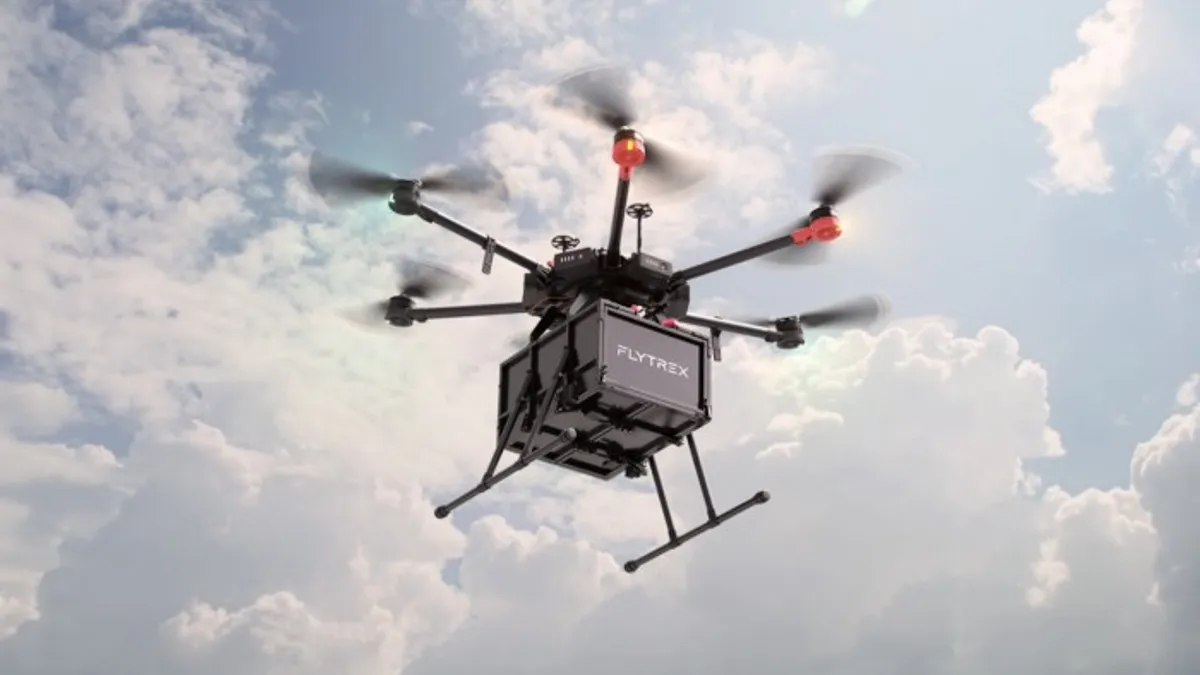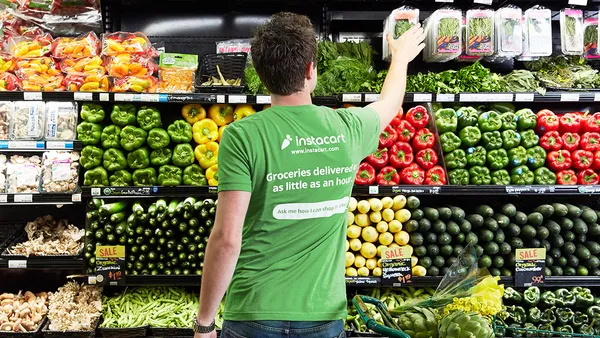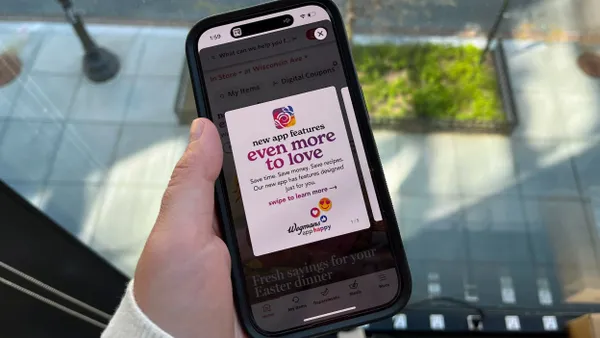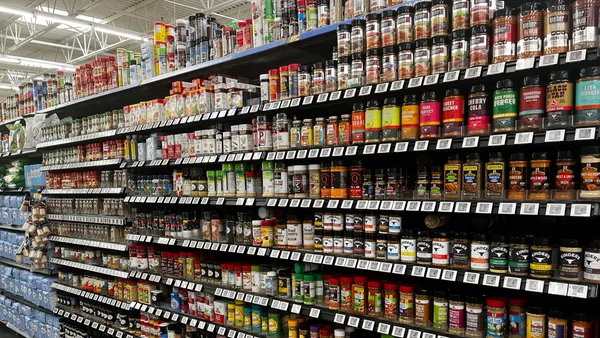Dive Brief:
- The Federal Aviation Administration (FAA) has granted Israeli dronemaker Flytrex and North Carolina-based drone services firm Causey Aviation Unmanned approval for a drone-based food delivery pilot, according to a press release emailed to Supply Chain Dive.
- The team will deliver food via drone in Holly Springs, North Carolina, as part of the FAA's UAS Integration Pilot Program (IPP) program in partnership with the North Carolina Department of Transportation and the Town of Holly Springs.
- The drones will travel along a single fixed route from a distribution center to an outdoor recreational area over mostly unpopulated areas, though the route does cross a highway. The FAA approved this route. Flytrex drones have been delivering food in Iceland in partnership with a local e-commerce site since 2017.
Dive Insight:
With this plan, drones are beginning to show similarities to other introductions of autonomous vehicles into supply chains. Repeated fixed routes, or "milk runs," are quickly becoming a hallmark of early autonomous vehicle applications. Walmart, for one, is moving groceries between a Walmart grocery pickup location and a Walmart Neighborhood Market, in Bentonville, Arkansas, via autonomous van.
Fixed routes substantially decrease the variables the vehicle may encounter, and in the case of the North Carolina flight plan, minimizes the number of people the drone will fly over. Another player looking to deliver food via drone is Uber Eats. The company, which received FAA approval for a delivery trial in San Diego, says drones can deliver in less than half the time it takes a car or a cyclist.
So far Alphabet's Wing Aviation is the only drone operator to receive an Air Carrier Certification from the FAA, which allows it to make commercial deliveries. Package delivery operations are expected to begin in Virginia this year. Wing Aviation's drones are not yet delivering food in the U.S. but they are doing so in Australia, according to CNBC. UPS and Amazon have applied for similar permissions.
Delivery drones still have to address concerns over safety and air traffic congestion. There are also questions over efficiency, since drones like the ones Uber Eats is running have to deliver to a fixed landing zone, where an employee then makes a separate delivery to the customer's house. But tech companies are racing to innovate, meaning the technology could — like autonomous vehicle delivery — eventually make its way to the grocery industry.














